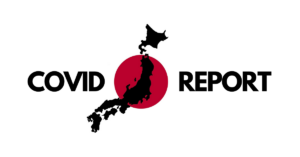
Financial Support for Businesses Impacted by COVID-19
The coronavirus pandemic has taken a heavy toll on the economy, especially for small- and medium-sized enterprises (SMEs) and sole proprietors. Foreign business owners face added difficulty, as there has been limited communication from the Japanese government aimed at the foreign community about the government support available to businesses suffering because of the pandemic. In this article we will explain several types of available subsidies, and their eligibility requirements.
Subsidy for Business Continuity
Jizokuka Kyūfukin (持続化給付金)
The jizokuka kyūfukin (持続化給付金), or “subsidy for business sustainment,” is aimed at business owners (SMEs and sole proprietors) whose businesses were particularly hit by the spread of the coronavirus, such as those that temporarily ceased operations at the government’s request. Businesses can use this subsidy in various ways to support continued operations and recovery.
SMEs can receive up to two million yen, and self-employed workers can get up to one million yen. You must meet the following requirements to be eligible for this subsidy (There are some exceptions. Religious associations, for example, are not eligible for this subsidy even if they meet the criteria):
1. [For SMEs only] You must meet one of the following conditions as of April 1, 2020 (For partnerships, federations of partnerships or general incorporated associations, 2/3 or more of the direct or indirect members of the entity must be individuals or corporations that meet one of the following conditions):
- The amount of capital or the total amount of contributions must be less than 1 billion yen.
- If the amount of capital or the total amount of investment is not specified, the number of regular full-time employees must be 2,000 or less.
2. You must have been generating business income (sales) from your business before 2019, and you must intend to continue business in the future.
3 . Since January 2020, there must have been months in which business revenues have decreased by 50% or more compared to the same month in 2019 due to the spread of the new coronavirus.
Rent Subsidy
Yachin Shien Kyūfukin (家賃支援給付金)
The second type of subsidy is the yachin shien kyūfukin (家賃支援給付金), or “subsidy for rent support.” This subsidy supports business owners (SMEs and sole proprietors) who are facing declining sales because of the extension of the state of emergency in May and other effects of the pandemic.
You are eligible for this subsidy if you rent your office and wish to reduce the financial burden imposed by the associated fees. The amount received from this subsidy is determined based on the rent paid within one month prior to the application date. It will cover 2/3 of this amount for up to 6 months. The subsidy is capped at six million yen for corporations and three million yen for sole proprietors.
You must meet the following requirements to be eligible for this subsidy (There are some exceptions. Religious associations, for example, are not eligible for this subsidy even if they meet the criteria):
1. [For SMEs only] You must meet one of the following conditions as of April 1, 2020 (For partnerships, federations of partnerships or general incorporated associations, 2/3 or more of the direct or indirect members of the entity must be individuals or corporations that meet one of the following conditions):
- The amount of capital or the total amount of contributions must be less than 1 billion yen.
- If the amount of capital or total amount of investment is not specified, the number of regular full-time employees must be 2,000 or less.
2. You must have generated business income before December 31, 2019 and intend to continue business in the future.
3. You must meet one of the following criteria between May 2020 and December 2020 because of the effects of the coronavirus:
- Sales in any one month have decreased by 50% or more compared to the same month in 2019.
- Total sales for three consecutive months decreased by 30% or more compared to the total sales for the same period in the previous year.
4. You must be paying rent in exchange for directly occupying someone else’s land or building for the business you operate, and using or earning income.
Rent & Relief Subsidy (Specific to Tokyo)
Tōkyōto Yachintō Shien Kyūfukin (東京都家賃等支援給付金)
The third and final type of subsidy is the Tōkyōto yachintō shien kyūfukin (東京都家賃等支援給付金), or “Tokyo subsidy for rent and related support.” Unlike the other two subsidies, which are provided by the national government, this subsidy is sponsored by the Tokyo Metropolitan Government to support business owners (SMEs and sole proprietors) that rent their offices. As a prerequisite for application, you must have received a notice of yachin shien kyūfukin from the Tokyo government. It is important to note that this subsidy is only available for rental properties in Tokyo.
The Metropolitan Government will provide three months’ worth of supplemental benefits in addition to the national government’s rent support. The maximum amount differs based on the “reference amount,” which is the one-month total of rent and related payments that were eligible for the national government’s subsidy described above. The subsidy’s limit is 187,500 yen for SMEs with a reference amount of 750,000 yen or less, 375,000 yen for SMEs with a reference amount greater than 750,000 yen, 93,750 yen for self-employed workers with a reference amount of 375,000 yen or less, and 187,500 yen for self-employed people with a reference amount greater than 375,000 yen.
You must meet the following requirements to be eligible for this subsidy (There are some exceptions. Religious associations, for example, are not eligible for this subsidy even if they meet the criteria):
1. You should have received a notice of yachin shien kyūfukin from the Tokyo government describing the rent support benefits.
2. You must be an SME or sole proprietorship with a head office, branch office, etc. in Tokyo.
SMEs must meet one of these two requirements:
- Have a head office in Tokyo or be subject to the Tokyo Metropolitan Government’s corporate business tax or corporate inhabitant tax.
Sole proprietorships must meet one of these two requirements:
- Have an address in Tokyo or run a business in Tokyo.
3. You should be paying rent or other compensation for directly occupying, using and earning income from land or buildings owned by others for your business in Tokyo.
While applications for all of these subsidies are available online, all official instructions and applications forms are currently only available in Japanese. If you would like to learn more or could use support in the application process, please don’t hesitate to reach out to us.
Related Content:

COVID-19 Japan Report
As the outbreak of the COVID-19 pandemic continues to bring unprecedented impact around the world, public and private sectors rush to adapt to a rapidly-changing global environment.

CEO Featured on Cover of August 2020 Issue of Eurobiz Japan
Timothy Langley, CEO of Langley Esquire, was interviewed for the August 2020 issue of Eurobiz Japan, the business magazine of the European Business Council (EBC) and EU Chamber of Commerce in Japan.

Reducing Headcount in Corporate Japan
Langley Esquire President & CEO Timothy Langley was featured in the July 2019 issue of the ACCJ Journal on a publication focused on reducing headcount in Corporate Japan. Foreign companies frequently run afoul of best-practices in Japan, resulting in damage to brand reputation and in the worst case, labor disputes.
